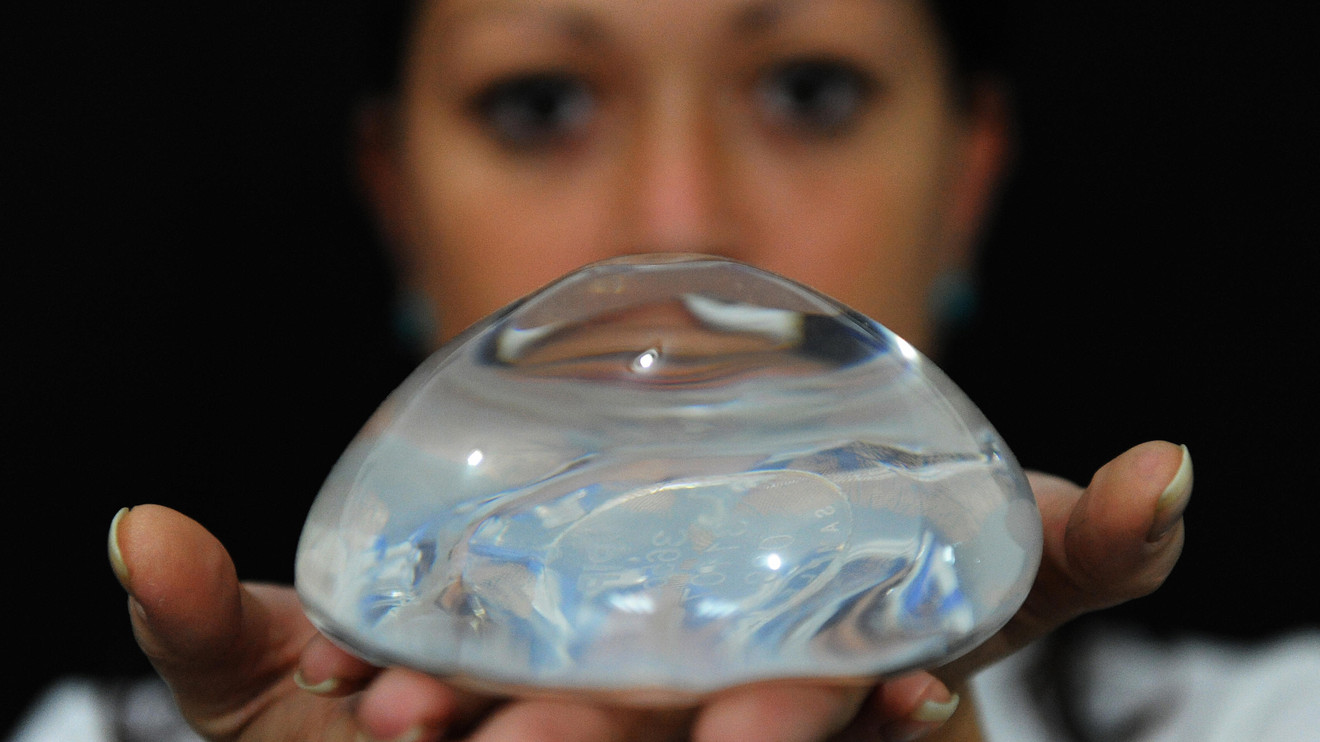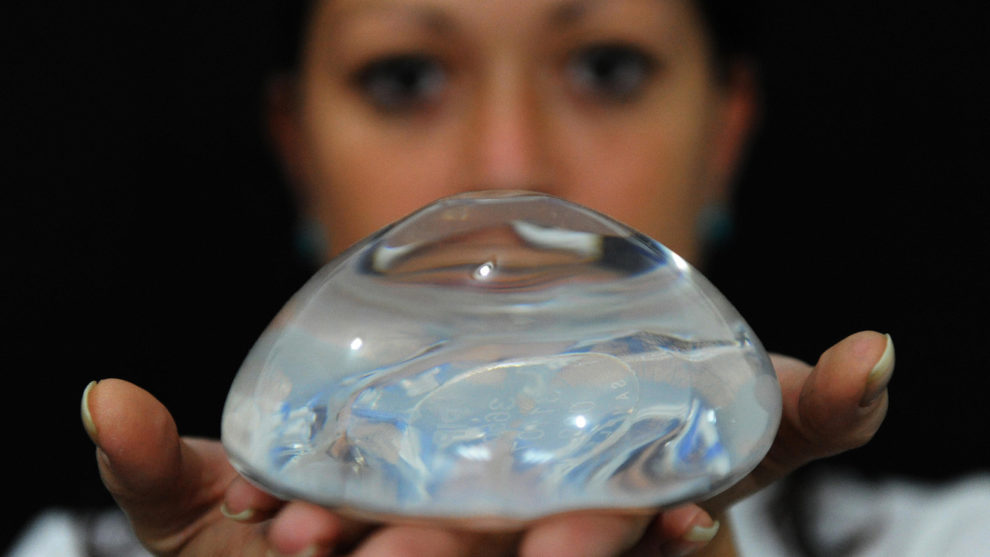
The Food and Drug Administration on Wednesday recommended that breast-implant manufacturers help make sure patients are wise to the risks and benefits associated with the devices, having heard “loud and clear” the clamor for increased awareness.
The agency’s draft guidance advised that manufacturers lay out risks relating to symptoms like joint pain and fatigue, as well as a link between breast implants and a rare cancer of the immune system, in a boxed warning, also known as a “black-box warning,” that would appear on product labels.
Such boxed information would warn that “breast implants are not lifetime devices,” the agency added, and that complications become increasingly likely over time, potentially prompting the need for additional surgery.
Patients may have to pay for surgery more than once
The recommended warning about implants not being a “lifetime device” is an important piece of information for patients who are budgeting and planning for the procedure, said Andrea Pusic, a reconstructive-surgery expert who is the chief of plastic surgery at Brigham and Women’s Hospital in Boston. Younger patients may need additional surgery related to their devices in perhaps five, 10 or 15 years.
Breasts can change for a variety of reasons, including pregnancy, nursing, weight changes and hormonal changes like menopause.
“It is helpful to plan from a financial perspective that you’re not just paying the cost of that one surgery,” she said. “Implants are devices — they need surveillance, and sometimes they need to be replaced.”
Breasts can change for a variety of reasons, including pregnancy, nursing, weight changes and hormonal changes like menopause, added Herluf Lund, a St. Louis-based plastic surgeon and member of the American Society for Aesthetic Plastic Surgery, in a statement sent to MarketWatch.
“As the breasts change through life, the breast implants that were selected at an earlier stage of life may not longer meet the needs or the desires of the patient, meaning the patient may need to exchange her breast implants for a different size or shape to meet her goals,” he said.
Breast augmentation was the most popular cosmetic surgical procedure in 2018, with 313,000 procedures performed, according to data from the American Society of Plastic Surgeons, another trade group. Breast-augmentation surgery costs $3,824 on average, according to the organization, while the average cost for implant-removal surgery is $2,566.
“We have heard from many women that they are not fully informed of the risks when considering breast implants,” FDA principal deputy commissioner Amy Abernethy and Jeffrey Shuren, the director of the FDA’s Center for Devices and Radiological Health, said in a statement. “They’ve stated that they need more information to facilitate meaningful conversations with their doctors and to make appropriate decisions for themselves.”
The agency’s draft guidance will be open for public comment for the next 60 days; manufacturers can then choose to follow the finalized guidance or opt for their own FDA-compliant labeling methods.
Boxed warnings call attention to ‘serious of life-threatening risks’
A boxed warning is one of the FDA’s most serious warnings. It typically appears in a bold font in black box on prescription drug labels and is designed to “call attention to serious or life-threatening risks,” according to the agency.
For example, the agency added boxed warnings to some prescription opioid pain medicines and some drugs that treat anxiety in 2016 after discovering that combining the two medicines could result in death.
The FDA also recommended that breast-implant manufacturers provide a ‘patient-decision checklist’ along with informational brochures or booklets.
The FDA also recommended that breast-implant manufacturers provide a “patient-decision checklist” along with informational brochures or booklets, for use during a patient-surgeon consultation.
A sample checklist published by the FDA included information on considerations for a successful breast-implant candidate, surgery risks, cancer risk, long-term impacts of implants, and systemic symptoms some women have reported following their procedures.
Manufacturers could also include easy-to-grasp product ingredient information on labels and provide more information on the patient “device card” that contains details on the specific implants they have, the FDA further advised.
Patients with silicone gel-filled implants should receive screenings for ruptures to their implants after five or six years, then every two years following the initial screening, the agency suggested.
Patients have been asking for better warnings of the risks
Women who said they had endured complications related to their breast implants urged the FDA during a March advisory-panel meeting to provide better warnings of the risks, the Washington Post reported at the time.
Allergan AGN, +0.05% voluntarily recalled its Biocell textured breast implants and tissue expanders at the FDA’s request in July, after the agency cited increased risk of breast implant-associated anaplastic large-cell lymphoma (BIA-ALCL), a kind of non-Hodgkin’s lymphoma linked to the products.
“We’ve heard loud and clear from the public advisory panel meeting we held earlier this year and from the information we’ve gathered from other ongoing efforts to engage with patients and stakeholders that there is a distinct opportunity to do more to protect women who are considering breast implants,” Abernethy and Shuren’s statement said.
‘Previous communications to patients interested in breast implants for either reconstruction or augmentation purposes were felt to be overly lengthy and confusing.’
Lund said that the measures prescribed by the FDA were “meant to enhance the process by which patients receive and understand the information needed as part of the informed consent process.” “Previous communications to patients interested in breast implants for either reconstruction or augmentation purposes were felt to be overly lengthy and confusing,” he said.
And Pusic urged consumers to consider the FDA’s new recommendations within the larger context of risks and benefits surrounding such procedures. Breast implants, particularly in cases of post-mastectomy reconstruction, can boost a woman’s body image and quality of life, she said.
“The more we can ensure that systematically women are being informed of the risks and benefits of surgery, that’s good,” Pusic added.
Implant patients would not actually see the boxed warning, because they don’t typically interact with an implant’s device packaging, Pusic said. So it’s important that the woman get information on risks and benefits early on, when she’s discussing the procedure with her doctor during a consultation.
Asked about how the boxed warning might help inform patients, an FDA spokeswoman said, “The patient checklist contains the same info as in the boxed warning. So the patient would check off item by item.”
A spokeswoman for Allergan, a leading breast-implant manufacturer, told MarketWatch in a statement: “Allergan fully supports ensuring patients are informed about the risks and benefits of breast implants. Allergan will continue to work with the FDA to ensure patient materials are clear and informative.”
Ideal Implant, Mentor JNJ, +0.54% and Sientra SIEN, +0.16% — the other three manufacturers of approved breast implants in the U.S., according to the FDA — did not immediately return requests for comment on the agency’s recommendations.











Add Comment